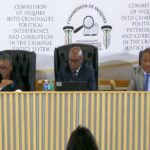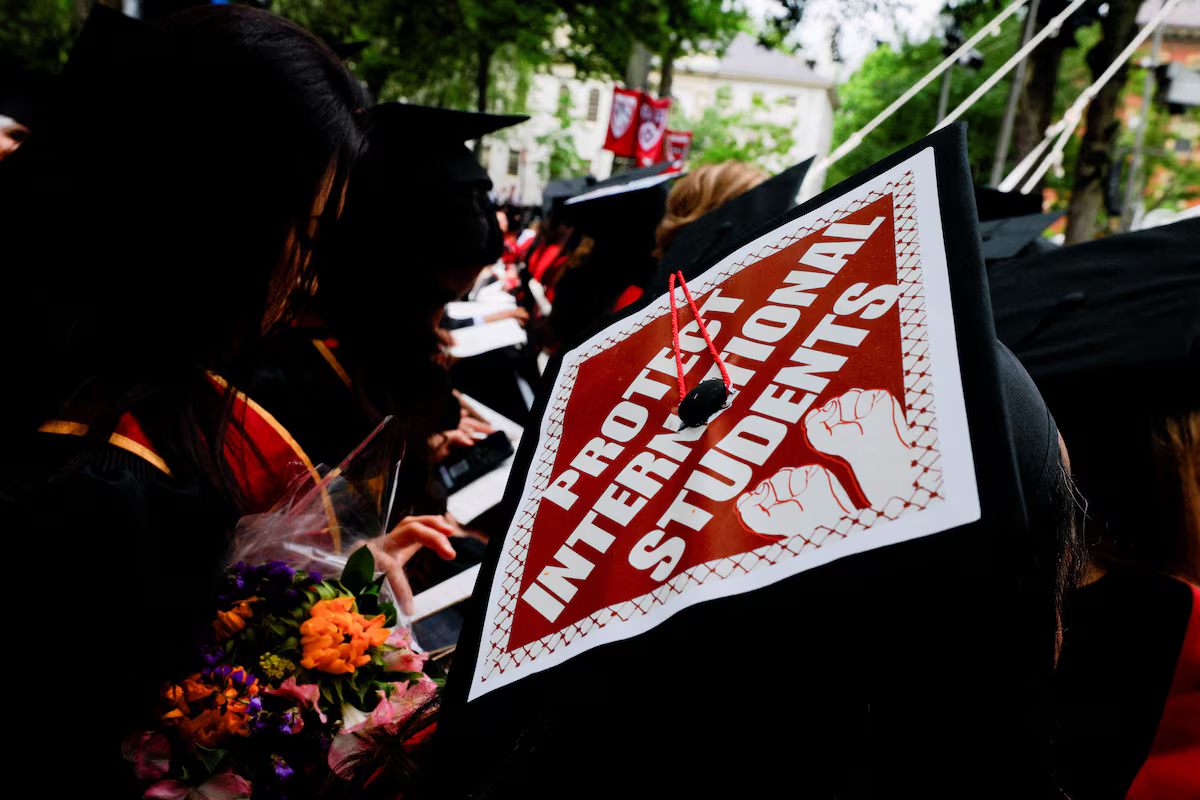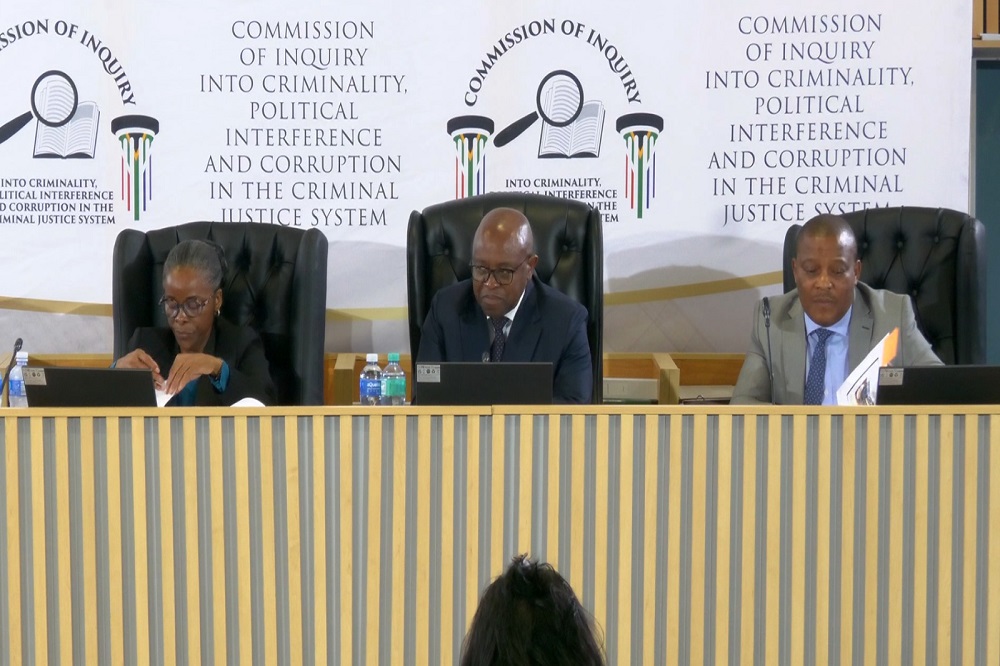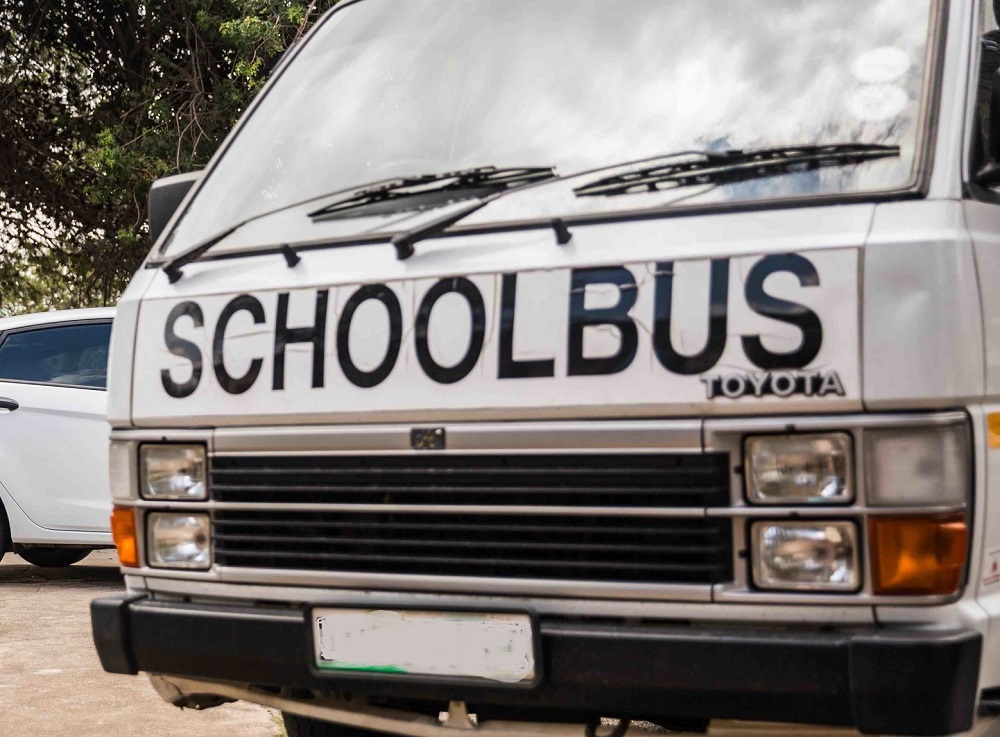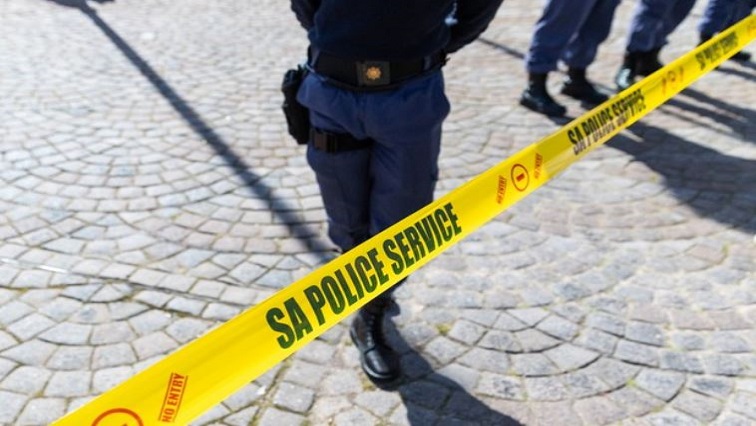-
A graduating student wears their hat, decorated with a statement of support for international students, during the 374th Commencement exercises at Harvard University in Cambridge, Massachusetts, U.S., May 29, 2025.
United States is restarting student visa appointments but will significantly tighten its social media vetting in a bid to identify applicants who are hostile towards the United States or pose a threat to national security, according to an internal State Department cable reviewed by Reuters.
U.S. consular officers are required to conduct a “comprehensive and thorough vetting” of all student and exchange visitor applicants to identify those who “bear hostile attitudes toward our citizens, culture, government, institutions, or founding principles,” said the cable, which was dated June 18 and sent to U.S. missions on Wednesday.
On May 27, the Trump administration ordered its missions abroad to stop scheduling new appointments for student and exchange visitor visa applicants as the State Department prepared to expand social media vetting of foreign students.
VIDEO | US judge blocks Trump’s Harvard foreign student enrolment decision
U.S. Secretary of State Marco Rubio had said updated guidance would be released once a review was completed.
The cable, which was signed by Rubio, directed officers to look for “applicants who demonstrate a history of political activism, especially when it is associated with violence or with the views and activities described above, you must consider the likelihood they would continue such activity in the United States.”
A State Department official, speaking on the condition of anonymity, said under new guidance, consular officers will ask for access to applicants’ social media accounts.
“To facilitate this vetting, all applicants for F, M, and J non-immigrant visas will be asked to adjust the privacy settings on all their social media profiles to ‘public.’ Posts may resume scheduling F, M, and J visa applications,” the official said. “The enhanced social media vetting will ensure we are properly screening every single person attempting to visit our country.”
Rubio, Trump’s top diplomat and national security adviser, has said he has revoked the visas of hundreds, perhaps thousands of people, including students, because they got involved in activities that he said went against U.S. foreign policy priorities.
Those activities include support for Palestinians and criticism of Israel’s conduct in the war in Gaza.
The change was earlier reported by The Free Press.
Trump’s critics have said the administration’s actions are an attack on free speech rights under the First Amendment of the U.S. Constitution.
In a cable in late May, Rubio had asked U.S. consular missions around the world to begin additional vetting of visa applicants looking to travel to Harvard University for any purpose.
The Trump administration has been in a multifront dispute with the nation’s oldest and wealthiest university.
The directive said that would serve as a “pilot for expanded screening and vetting of visa applicants”, raising the possibility of the measures being used as a template for applicants to other universities.
In the same cable, consular officers were directed to consider questioning the credibility of an applicant if the individual’s social media accounts were private, as that may be reflective of “evasiveness”.
Activities deemed anti-semitic or anti-American are increasingly a red flag for the administration in its visa determination process.
Such activities were raised as a source of concern by the State Department in a separate internal cable dated June 14 that recommended 36 more countries be added to Trump’s travel ban.
VIDEO | US tightens noose on foreign students:



